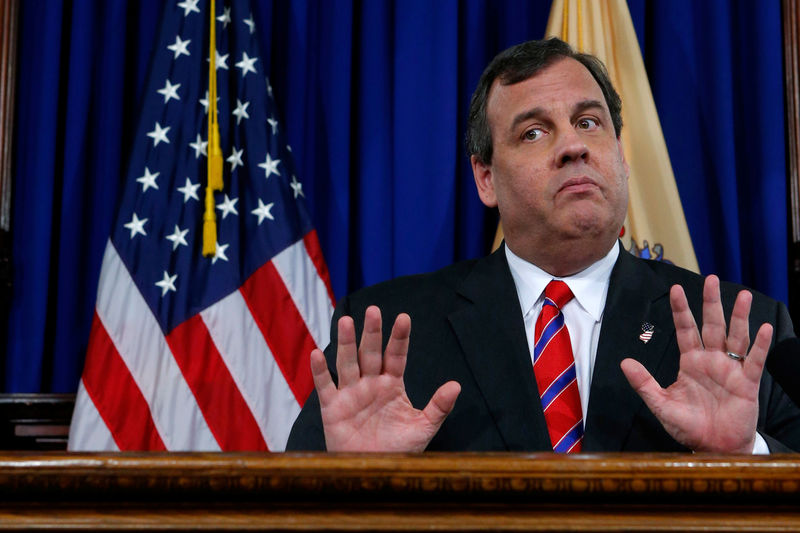By Elinor Comlay
(Reuters) - New Jersey Governor Chris Christie, trying to redeem himself at home and nationally after a scandal-tarred 2016, said on Tuesday he will make tackling New Jersey's spiraling drug-abuse epidemic the focus of his last year in office.
Beginning his eighth and final year as governor, the former Republican presidential contender touted achievements - including reducing the size of state government, trimming taxes and lowering the unemployment rate - in his annual State of the State address.
Christie's approval rating has tanked to 18 percent in his home state in the most recent polls after he spent much of 2015 traveling outside of New Jersey during his presidential campaign. He is not eligible for a third term and will stand down next January.
His national political career has also waned since the Bridgegate scandal involving his former top aides tarnished his reputation.
After a trial late last year, two of Christie's former aides were convicted of fraud and conspiracy and have asked for a new trial in the politically motivated scheme to close traffic lanes on the George Washington Bridge, the world's busiest.
While Christie has not been charged and denied having advance knowledge of the scheme, the controversy helped diminish his role on President-elect Donald Trump's transition team.
New Jersey had also not recovered jobs after the recession as quickly as neighboring states and suffered 10 credit rating downgrades during Christie's tenure.
Democrats, who control the state legislature and could retake the governor's office in the state's November election, said they would work with Christie to lower drug abuse deaths, according to Assembly Speaker Vincent Prieto.
Christie said tackling drug addiction also touches schools, law enforcement and residents' financial security.
"Drug addiction is a disease. It is not a moral failing. It is a disease that can be treated," he said.
He wants to limit prescription of painkillers and said the state Attorney General should, "if necessary," open an investigation into doctors' prescribing practices and their interactions with drug makers.
"Profit, by physicians or the pharmaceutical industry, must never be a rationale for contributing to the death of our citizens by overprescribing of these drugs," he said.
With several major pharmaceutical and biotech companies headquartered in New Jersey, it has long been considered the "medicine chest of the world," though it has experienced job declines in recent years.

The state is launching a website, reachnj.gov, and a hotline, among other measures to battle addiction.